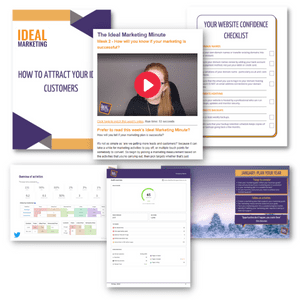I’ve been working in SEO for almost a year now and the amount that I’ve learnt is phenomenal. I didn’t realise that this one area of digital marketing was so vast, or how interesting I would find it to understand how SEO works and what to do to make it work well.
Here, I wanted to share the key elements of SEO that I have learnt, to outline the basics of SEO for anyone else who is new to this area of marketing, or unaware of the benefits that it can bring to a business.
Why businesses need SEO
A Business could have the best-looking website compared to their competitors, however if the site and content isn’t optimised, it will mean nothing and the business will struggle to drive organic search traffic to their website.
Google search statistics show that there are around 3.5 billion searches per day and less than 10% of people advance to page 2 of their Google search. So, these stats show that SEO is more important than you might have thought, because for people to find your website you need to optimise it.
What SEO is made up of
I have simplified SEO into four categories to make it easier to understand:
- Technical SEO: How well your content can be crawled and indexed by Google.
- Content: Creating content that adds value by being relevant to what Google’s users are searching for.
- On-site SEO: The optimisation of your content, URL and metadata (to name a few examples).
- Off-site SEO: Building domain authority to demonstrate to Google your website is credible and trustworthy.
What is technical SEO?
In basic terms, technical SEO uses tools and tactics to ensure that a search engine can explore your site and read your content. From page load times to missing tags, there are a whole host of technical aspects that need to be considered when your website is created and then on, for the rest of its lifetime.
Examples of technical SEO considerations:
- Can the search engine crawl your site and is it clear which pages should be indexed and returned?
- Is your site mobile friendly (does the layout adapt to mobiles)? If it’s too complicated to use, often a visitor will just go back to the search engine and look for a better website. To learn more on this, check out our guide to ranking highly in mobile search.
- Do the pages load fast? It is critical to keep your visitors on your site for as much time as possible.
- Is your content structured properly on your site? For example, is it easy to get to all of the pages and is this clearly outlined in a sitemap? Your visitors will not want to click through 10 different pages to get to the one they are looking for and Google won’t want to point them in your direction if this is the experience your website provides.
What is on-site (or on-page) SEO?
Keywords are a huge part of on-site SEO. You need to put yourself in the shoes of your target audience by thinking about what they would search for to land on your website but also which keywords you want your website to appear against when people use them for searches. Tools like Google keyword planner give you a starting point around what people have searched for based around your business and its products or services.
Where should you put keywords on your site?
- Page titles should include keywords naturally. Answers to questions are good because typically your audience will you put their search in the form of a question. For example, ‘How to start building muscle in the gym’.
- Metadata (also referred to as a meta description) is the copy under the website link on a search engine that gives a succinct description of a specific website page. Make that metadata is relevant to the page’s content and shows people searching for a relevant product/service, that information about it can be found on that page.Visit our guide to meta descriptions to learn more.
- Make your site easy and enjoyable to navigate around, whilst making it simple for your visitor to know what to do next.
- URLs should also be relevant to each page to improve its chance of ranking in searches.
Which types of content improve SEO?
Using relevant content on each of your website’s pages is very important. Types of pages which work well, include:
- Blogs/news – uploading regular informative and appropriate articles based on keywords that you want to be found for. Look at your competitor’s blog/news section to get an idea of topics but do not copy their content.
- Service/products – Putting service/product pages on your site with descriptive content of the service or product you’re offering. Make sure you fill it naturally with keywords.
- Google owns YouTube, so it’s no surprise that it likes websites to use embedded links to relevant YouTube videos that you or other people have made.
- Social media is becoming more and more popular every day. There are more than 1 billion active Facebook Setting up your business on social media helps drive prospects to your website. You can post links to your articles or pages on social media. From there you want those visitors to stay on your site, so including links to other pages on your site that could interest them, on the page that they land on, will increase the chance of them staying on the site for as long as possible.
How does link building help with SEO?
Link building or outreach, is having websites that are relevant to your sector or industry link back to your website. This can be done through articles and publications that you have written to be published on another website.
Make sure that the website you wish to write for is relevant to your sector or industry because this tells Google that the information on your site is valuable and therefore puts your site in a greater position of authority.
How we can help with your sites SEO
With all SEO work we undertake, we will always develop a data-driven, measurable strategy that works based on your company’s individual goals and requirements.
If you would like to improve how well your website is found using search engines, we can help. From keyword research and creating expert content for your website, to developing and delivering outreach strategies. For more information, contact us or alternatively, you can email me directly with any questions you have at kieran@idealmarketingcompany.com







